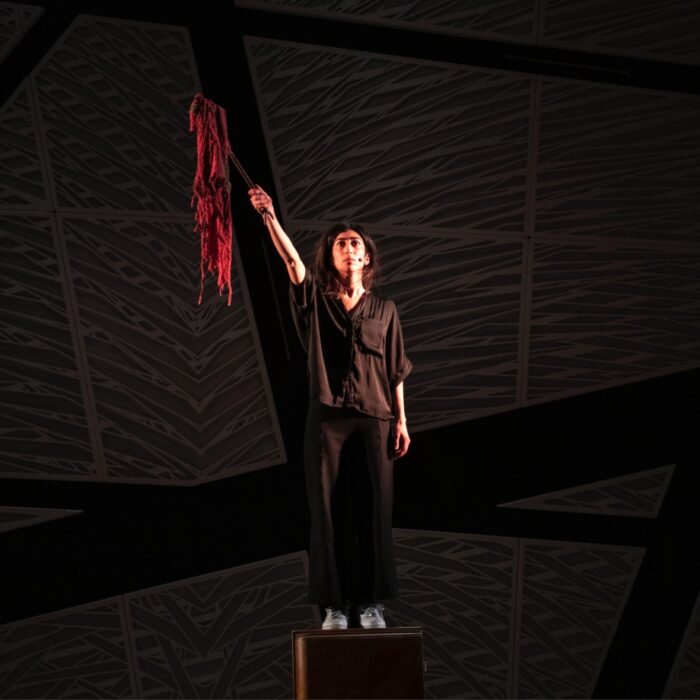
Wexford Festival Opera 2019 Review: Manuel Amati in Recital
A Charismatic Performance From A Young Singer Who Enjoys His Art
By Alan Neilson(Photo: Michele Monasta)
One of the delights of the Wexford Festival is the lunchtime recital which takes place in the mid-18th century church of St. Iberius on Wexford’s North Main Street each day at 1 o’clock. Lasting around an hour, it leaves just enough time for a quick lunch before the afternoon Opera Short presentation at Whites Hotel begins at half past three.
The singers are selected from the many performers appearing in the operas, and they are not necessarily those cast in the major roles, or who have the highest profiles; some are performing only minor parts. Yet, the overall standard is consistently high.
One of lesser known singers selected for one of this year’s recitals was the Italian tenor Manuel Amati. It is very unlikely that many people would have heard of the 23-year-old, at least if they had not been to a performance of the double “Adina” and “La Cuncina” in which he played a couple of minor role. Yet he has already appeared in a number of opera houses across Italy and is contracted to sing at La Scala and La Fenice during 2020.
Love, Through Italian Eyes
Amati started his recital with that well-worn Mozart aria, “Il mio tesoro” form “Don Giovanni,” in which he showed off the light attractive timbre of his voice, his delicate phrasing and even legato. However, it was nothing out of the ordinary and did little to suggest that the recital would be long remembered as anything particularly notable.
He based his recital around the theme of love, appropriately seen through Italian eyes, in which all the composers, with exception of Mozart, were Italian.
Following on from Don Ottavio’s aria, Amati continued with a song by Tosti called “Vorrei morire,” although not before indulging in a very entertaining preamble, in which he engaged in a very direct and personal way with audience. It was with this song that the recital really began. In what was an expansive and passionate presentation, Amati, singing with confidence, opened up his voice so that its beauty could really be heard. Attentive to the meaning of the words, his phrasing was subtly crafted, and displayed attractive open vowel sounds, successfully conjuring up the sound of Italy.
Next up were three pieces which focused on the “victims of love.” The first by Paisiello, “Nel cor più non me sento,” which is a reflection on the pain caused by love, was again sensitively delivered. This time, Amati draped his lines with melancholy, successfully capturing the emotional torment at the heart of the song. Amati also is a very animated performer, and very fond of gestures, which he integrated naturally into his performance, which added to the affect.
The second song, “La lontananza” by Rossini was taken from his collection “Sins of Old Age.” Amati produced a fine reading in which caught the meaning and melody perfectly, crafting clearly defined phrases, which again captured the innate Italian beauty of the piece.
For the third piece, Amati had selected “Un’aura amorosa,” Ferrando’s aria from “Così Fan Tutte.” Managing this piece more successfully than his opening aria, Amati sang with passion and meaning, beautifully caressing the word “amorosa” to highlight his deep pain, and displaying intelligence in the way he used pauses to elongate the reflective nature of the aria. His ambitious employment dynamic emphases also added to the emotional intensity of the presentation, although at times they were a little excessive.
He followed this up with “L’orgia,” a song by Rossini about love for women and wine. Amati took the opportunity to play up to the audience with an over the top performance with comedy very much to the fore. Indulging himself in a bit of word painting, Amati hiccoughed and slurred his way through the song, and finished by kneeling in front of a woman in the audience and kissed her hand, much to everyone’s delight.
More Serious Side
Amati’s next offering allowed him to show off his more serious and passionate side in a rendition of Di Capua’s “l’ te vurria vasà.” Once again, he opened up his voice, exposing the rich vowel sounds, this time coating the voice with a warmer, darker seductive veneer, in what was a moving interpretation. Here he played upon the Italian stereotype of the “latin lover.”
After a neat performance of “Floris” by Garcia as arranged by his daughter Pauline Viardot, the tenor moved on to a Neapolitan song “Marechiare” by Tosti. Marechiare is the name of a village just outside Naples, situated next to the sea, in which a man standing below his lover’s window calls her to wake up. He waits a long time, but she doesn’t appear.
It is a song to which Amati brought vitality, joy and passion, and in which he transitioned seamlessly between soft, slow passages and quicker, more animated sections. He capped it all with a wonderful crescendo. Moreover, he was fully engaged and clearly enjoying himself, as he used the whole space in front of the audience to act out the part; he finished by once again singing directly to the lady in the front row. The audience reacted with excited applause, the “bravos” ringing out!
To finish off the recital, Amati decided to sing Donizetti’s aria, “Una furtiva lagrima” from “L’elisir d’amore.” He gave a passionate, lively rendition, which being well-known to the audience, was no doubt calculated to end on a high note. It did not fail, and the audience gave him sustained applause, although this was as much for his overall performance as for the last aria, which to be fair was not his best.
Encore
Amati was happy to respond with an encore, choosing “Si spande il sole in faccia” from Mozart’s opera “Il Re Pastore,” which, although not badly presented, was not up to the same standard as the main body of the recital. Unfortunately, he seemed to have hit the high point with “Marechiare.” One was left to reflect how much better it would have been if he had finished with “Marechiare” and then presented “Una furtiva lagrima” as the encore, inserting the Mozart earlier into the program.
He was accompanied on the piano by 26-year-old Giorgio D’Alonzo, who certainly played his part in making the recital such a success. His playing was precise, with a crisp, fresh and engaging sound, and he was acutely responsive to the nature of the pieces, as well as to Amati’s singing.
I managed to catch up with Amati at the end of the recital, who was decidedly unhappy about his performance, explaining that he was unwell and struggled in some parts. He was being unfair on himself for this was an excellent recital from a young singer with huge potential. He has a strong stage charisma, and excellent voice and a genuine love for his art. He is someone we are certain to hear more of in the future.



